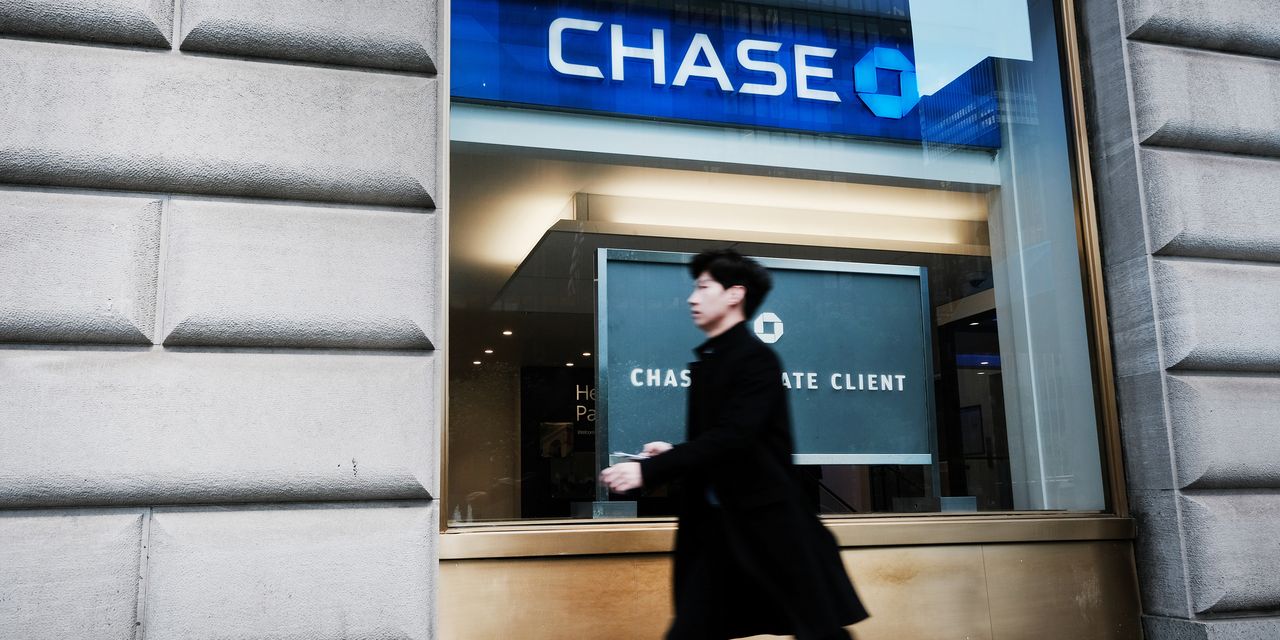Bank earnings season is set to begin on Friday when
JPMorgan Chase,
Wells Fargo,
and Citigroup report their second-quarter results. And while there is little outright worry, a fair bit of caution still remains following the turmoil in the sector earlier this year.
Uncertain times lead to opportunity, however. And for Piper Sandler analyst Mark Fitzgibbon that means a back-to-basics approach to finding investible banks focusing on three characteristics: Simple-to-understand business models, competent management teams, and the ability to grow tangible book value over time.
Among the banks topping his screen are
Bank OZK
(ticker: OZK),
Pinnacle Financial Partners
(PNFP),
Prosperity Bancshares
(PB), and
First Citizens Bancshares
(FCNCA)—all of which have a compound annual growth rate in tangible book value in excess of 10% over the last 20 years. First Citizens also acquired much of what was Silicon Valley Bank following its collapse in March.
That isn’t to say banks don’t face challenges. The turmoil this spring, which saw the collapse of SVB, Signature Bank, and First Republic, has meant banks are likely to face higher capital requirements to maintain the sector’s stability. Those tighter controls may constrain their ability to lend and return capital to shareholders via dividends and buybacks.
Some of those worries abated last month when 23 of the nation’s largest banks passed the Federal Reserve’s annual stress test. The test cleared the way for banks to update their capital plans, with many announcing higher dividends, though announcements on buybacks were more muted.
Without the promise of higher payouts in the near term—coupled with an expected 7% year-over-year drop in second-quarter earnings per share, according to analysts from Keefe, Bruyette & Wood—many investors have wanted to stay away from the industry. The
SPDR S&P Bank ETF
(KBE) was down as much as 30% just two months ago and has been clawing its way back. It is now off by 18%.
“On a daily basis, new concerns seem to arise about things that could have negative ramifications for the bank industry,” Fitzgibbon wrote, citing credit concerns, funding, and profitability. “While we, too, worry about many of these things, we can’t help but want to look past the current gyrations in the group and take the Long View.”
Fitzgibbon isn’t the only one getting selectively bullish on banks. Analysts at Jefferies upgraded
JPMorgan Chase
(JPM) to Buy from Hold Tuesday, while also citing a preference for Buy-rated
Morgan Stanley
(MS) and
Goldman Sachs
(GS) since they are less reliant on net interest income, have more stable revenue, and less credit risk.
The upgrade for JPMorgan comes even after shares have climbed 10% this year, far exceeding the losses in the banking index.
“While JPM has been a recent winner, we upgrade the stock to Buy given a stable earnings outlook, best-in-class return on equity profile, conservative reserving history, and better revenue diversity,” Ken Usdin, analyst at Jefferies, wrote. It also appears to fit the three rules laid out by Piper’s analysts.
JPMorgan will be the first of the big banks to report on Friday, followed by
Wells Fargo
(WFC) and
Citigroup
(C). Goldman, Morgan Stanley, and
Bank of America
(BAC) report next week.
With worries about contagion from spring’s banking turmoil mostly in the rearview mirror, investor attention will be turning to how banks are navigating a challenging economic climate. Households have largely spent down their pandemic savings, meaning banks are expecting to see credit defaults approach prepandemic levels.
Higher-for-longer interest rates are also expected to weigh on banks in several ways. Banks continue to have billions of dollars of unrealized losses on their balance sheets from falling bond prices. With higher interest rates, they are also expected to pay out more to their depositors, which is eating away at the interest income they earn from loans.
Finally, for investment banks, higher rates have put a chill on deal-making activity since financing mergers and acquisitions has become more expensive.
But even with these headwinds, there are opportunities for those who are patient.
Write to Carleton English at [email protected]
Read the full article here





